Is Zionism becoming a protected class, criticizing Israel a taboo subject of speech? How the genocide debate is causing chaos on U.S. campuses.
Maura Finkelstein
There is an ideological battle being waged within American academic institutions in the wake of October 7th, 2023: Does Zionism count as a protected class? Under most U.S. college and universities’ Equal Opportunity Nondiscrimination Policy, the list of protected classes includes, amongst its many categories, “national or ethnic origin.” According to the US Equal Employment Opportunity Commission, “national or ethnic origin” refers to a person who “comes from a particular place, has a particular accent, or appears to have a particular ethnic background.”
Zionism is a nationalist, political ideology invested in the establishment and enforcement of a Jewish state. Despite numerous discursive attempts to collapse the two, Zionism by definition is not synonymous with “Jewish” (an ethno-religious identity) or “Israeli” (a national origin). However, after the House passed a resolution in December equating antisemitism with anti-Zionism, Zionists have been emboldened to lodge complaints against those who are writing, teaching, and speaking out (notably, on social media) against Israel’s genocide in Gaza. To call for a ceasefire, to criticize Zionist ideology, to suggest that Israel is a racist settler colonial state, is — according to this argument — an attack on Zionists and therefore also an attack on Jewish people.
With Zionist backing, many academics who teach, write, and speak about Palestine are currently either being completely silenced or controlled through an insistence on “both sides” discourse. Academic freedom, it seems, is hanging by a thread.
Zionism is a racist ideology, reliant on the displacement and destruction of an indigenous population (Palestinians) in order to establish, control, and police the anti-democratic, theocratic ethno-state of Israel. The founders of Zionism were clear about this intent, even as contemporary Zionists attempt to obscure this historical reality. However, as a settler colonial project, Israel has been given impunity and granted exceptional status due, in part, to the legacy of the Holocaust. Scholars including Rashid Khalidi, Robin D.G. Kelley and Raz Segal have written about how international law was developed against the backdrop of the Holocaust, which was framed as exceptional in order to be separated from the horrors of European colonialism, which was, ironically, being dismantled at the same time. This exceptionalism has granted Israel an impunity that has paradoxically authorized the ongoing genocidal occupation of Palestine and the Palestinian people.
Challenges to Israel’s exceptionalism have been silenced in several ways. In the U.S., one form of silencing has been leveraged through anti-Diversity, Equity, and Inclusion (DEI) initiatives. Over the past few years, far right conservatives have strategically leveraged claims of antisemitism to advance a coordinated campaign focused on dismantling DEI initiatives. Most of these claims are drawn from a 2021 study conducted by the Heritage Foundation, “Inclusion Delusion: The Antisemitism of Diversity, Equity, and Inclusion Staff at Universities.” As a data set, this study relies exclusively on “the Twitter feeds of 741 DEI personnel at 65 universities to find their public communications regarding Israel and, for comparison purposes, China.”
There are two points to address here: first, by relying entirely on the tweets of DEI staff, the Heritage Foundation argues that personal social media accounts indicate the kind of work a person is doing in their professional capacity. The report concludes, based on this collapsing of personal and professional platforms, that: “The political activism of DEI staff may help explain the rising frequency of antisemitic incidents on college campuses.” The report demonstrates no evidence of this cause and effect (views expressed on social media resulting in a rise of antisemitism on college campuses) and instead relies on loose interpretation: “While American Jewry is rarely mentioned specifically in these public communications from DEI staff, their alleged role in facilitating Israeli crimes is often in the subtext.” The report concludes by calling for the defunding and restructuring of DEI initiatives, as “the purpose of having DEI staff…[is] to welcome students from all backgrounds, make them feel included, and prevent or address incidents of hate and bias. But it is clear that DEI staff at universities actually function as political activists, articulating and enforcing a narrow and radical ideological agenda.” And yet the report shows no evidence of these accusations, as the argument relies only on Twitter feeds, with no interaction or interviews with either DEI staff or college and university students (for a more in-depth critique of the report’s methodology, please see this analysis in The Forward).
Second, the report argues: “Frequently accusing Israel of engaging in genocide, apartheid, settler colonialism, ethnic cleansing, and other extreme crimes while rarely leveling similar criticisms toward China indicates an irrational hatred that is particularly directed toward Jews and not merely a concern for human rights” (emphasis mine). This sentence does two things — first, it suggests that any criticism of Israel is based on “irrational hatred,” opposed to evidence of “genocide, apartheid, settler colonialism, ethnic cleansing, and other extreme crimes” against Palestinians. Additionally, it equates criticism of Israel (anti-Zionism) with attacks on Jews (antisemitism). In making this discursive move (anti-Zionism equals antisemitism), the report cites the definition of antisemitism established by the International Holocaust Remembrance Alliance (IHRA), a definition that has come under increased scrutiny since October 2023 (for example, see reporting in The Nation and The Guardian). In particular, the IHRA definition of antisemitism includes: “Denying the Jewish people their right to self-determination, e.g., by claiming that the existence of a State of Israel is a racist endeavor.” Interestingly, one tweet the report found particularly incendiary read: “Jewish people are not responsible for the actions of the Israeli government, but we are responsible for calling out violence and human rights abuses when we see them, especially when the people committing the violence claim to be doing so in our name” (emphasis mine). Here, the DEI staff member identifies themselves as Jewish. Therefore, in flagging this tweet, the report is accusing a Jewish anti-Zionist staff member of antisemitism.
This report echoes the firing of Palestinian American scholar Steven Salaita, who, in 2014, was terminated from a faculty position in the American Indian Studies Program at University of Illinois at Urbana-Champaign (UIUC), two weeks before he was scheduled to begin work. Because of his signed contract, Salaita had resigned from his tenured faculty position at Virginia Tech University. UIUC’s decision was motivated and justified by tweets on Salaita’s personal Twitter account, which criticized Israel’s attack on Gaza, carried out through Operation Protective Edge. An estimated 2,310 Gazans were killed by Israeli soldiers, in addition to 10,895 wounded, including 3,374 children, 1,000 of whom were left permanently disabled. Salaita’s outrage was described by UIUC us “uncivil.” Like Salaita’s case, the data and arguments put forth by “Inclusion Delusion,” linking personal social media activity and job performance, is shaky at best. This report is also part of an unexpected alliance, as far right conservatives, White supremacists, neo-Nazis, and Jewish Zionists across the political spectrum have found common ground together in pursuit of silencing all criticism of Israel and support for BDS (Boycott, Divestment, and Sanctions), Palestinian liberation, a ceasefire, and an end to genocide. Attacks on DEI initiatives are an extension of this work.
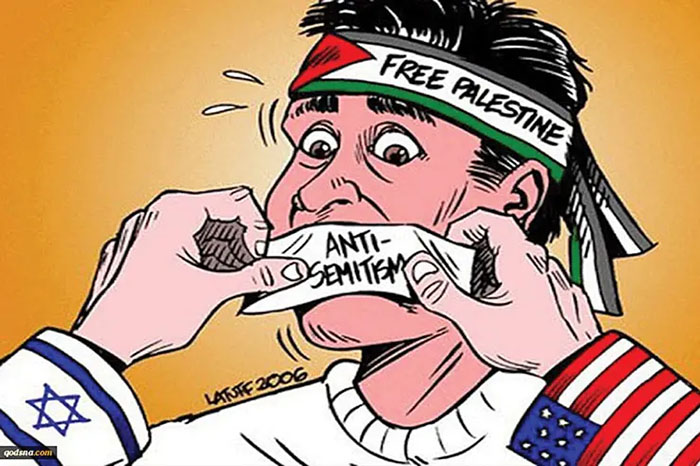
These attacks are only the most recent iteration of a long battle waged by right wing opponents of equal opportunity initiatives in spaces of education and employment. Conservatives have been attacking affirmative action since its inception and college and university campuses are one of the key battlegrounds for this fight. When the Supreme Court ended race-conscience admissions programs at US colleges and universities in June 2023 (effectively gutting affirmative action), Clarence Thomas justified the decision by claiming: “Those policies [affirmative action] fly in the face of our colorblind Constitution.” While a “colorblind constitution” is a fantasy in a country rooted in anti-Blackness and ongoing Indigenous genocide, affirmative action has drawn attention to the slipperiness of racial categorization. In the United States, while it may be easy to define the categories of Black, Latine, and Asian for the purposes of institutional review, whiteness expands and contracts in order to shore up power and exert its sovereignty. Jews and Arabs (for example) are sometimes defined as white and sometimes defined as “other” and are not necessarily included in race-based admission and employment practices. In her classic work of anthropological research, How Jews Became White Folks And What That Says About Race in America, Karen Brodkin shows how Jews have inhabited both whiteness and “off-white” racial designations, depending on shifting economic, political, and social context. This ambiguity of privilege, subjugation, power, and discrimination experienced by Jews in the US shares elements of the “model minority” position historically demanded of Asian and Asian Americans. As Hua Hsu showed in a 2018 New Yorker essay, Asian-Americans have long been used as a wedge by conservative (primarily white) opponents of affirmative action and other policies invested in gutting civil rights. Similarly, Jewish Zionists are currently being used by conservatives to dismantle DEI initiatives in service of white supremacy.
I have seen first-hand how Zionists appropriate this far-right playbook to frame Jewish students as the singular victim of “left-wing,” or “woke,” diversity initiatives on college and university campuses. For nine years, I have taught at a small liberal arts college that identifies itself as a safe place for Zionists. While the campus has historically been a difficult place for anyone critical of Israeli occupation, since October 7th, 2023, the college administration has intensified its silencing of anti-Zionist and Palestinian perspectives. The closest the college has come to acknowledging the real violence and pain of Israel’s ongoing genocide in Gaza is to set up “listening circles.” In an email sent to faculty and staff in late October, the college chaplain explained that: “The process we will use… allows each person to share their experience and listen deeply to the experiences of others. It is meant to lead us forward, not through discussion, dialogue, or debate, but by first actually hearing the experiences of each person present, even if they are conflicting. It allows us to be seen and challenges us to see each other.”
There’s real danger in this stance, as such an approach normalizes all emotional reactions to genocide, whether pro-Israeli military occupation and genocide, pro-Palestinian freedom, or anywhere in between (the recent explosion/implosion at Guernica Magazine also reveals this normalization). Furthermore, the college President, in an email several weeks later, wrote: “Our commitment to the civil exchange of ideas remains firm. Each of us can and should articulate our opinions freely in public and on campus within the bounds of College policy and the law.” This seemingly liberal approach to discourse masks a darker reality. Historically, “civility” has been used to silence dissent and protect white supremacist heteropatriarchal capitalist power. According to the college administration, there is no correct, moral, or ethical response to genocide — everyone has the right to have an opinion and be heard.
These listening circles were developed as part of the college’s DEI initiatives, and the faculty and staff facilitating the meetings are connected with other DEI work on campus. In demanding “civility,” the college argues that all feelings, experiences, and traumas are equal and valid, regardless of the power dynamics involved. This is far from an anti-racist approach to education. Ideologically, it’s a Liberal one. In practice, it’s a Zionist one.
Even if the college were interested in facilitating the free exchange of ideas, over the past nine years, I have become familiar with how the administration’s political and ideological investments undermines this vision. In my capacity first as an assistant and now associate professor of anthropology, I teach a class on Palestine, write about Palestine, and have invited a Palestinian speaker to campus. Through this work, I have encountered the power of Hillel International, an entity I once believed was intended to serve all Jewish students. Instead, I now understand that, “Israel is at the heart of Hillel’s work.” My campus is one of 65 colleges and universities across the US who host an “Israel Fellow”: a former Israeli soldier tasked with helping students forge a lasting relationship with Israel. In partnership with programs like Birthright and Masa Israel, students are encouraged to spend time in Israel, whether through travel, volunteer opportunities, internships, or professional training. Notably, Hillel offers Hasbara Fellowships, a program that “brings hundreds of students to Israel every summer and winter, giving them the information and tools to return to their campuses as pro-Israel activists and leaders.” “Hasbara” literally translates as “explanation” but more informally translates as: “control of narrative and the manipulation of information as an essential element of modern warfare,” according to the Middle East Policy Council (MEPC). Whenever I’ve encountered student-driven opposition to my work on Palestine, it’s part of a coordinated campaign that students have trained for, both on campus through Hillel and in Israel. At the listening circles hosted on campus, these students effectively shut down any whispers of solidarity with Palestine or challenges to Israeli impunity. Instead, students who identified as Arab, Muslim, Palestinian, or anti-Zionist reached out to me in private, lamenting their inability to speak and reflecting on a campus climate that felt hostile to their views and identities.
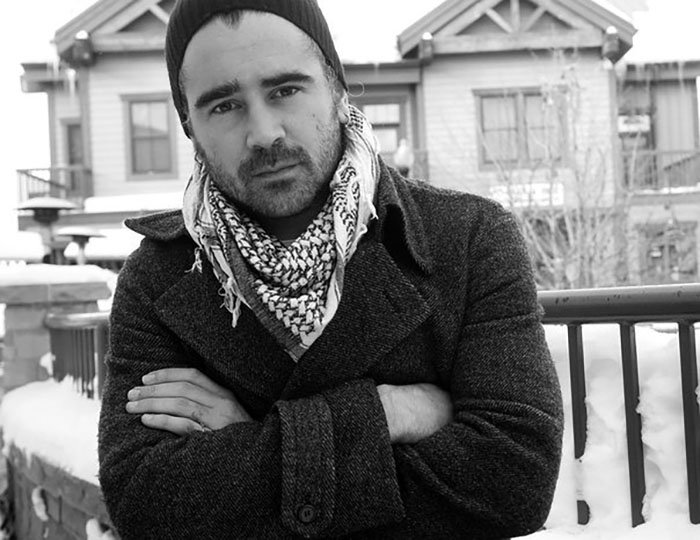
Since mid-October, I have been under a coordinated attack from Zionist students, colleagues, alumni, parents, and donors. This has occurred online, through email, and across several social media platforms. When these attacks spike, they usually come from organized actions by students and alumni who have been trained by programs like the Hasbara Fellowship. Usually these attacks closely follow a script, for example, framing the occupation and genocide as a war with Hamas; claiming that Hamas would kill me for being queer; framing all solidarity with Palestinians (including BDS) as antisemitic, etc. However, there is one particular troll on Facebook who has deviated from the usual script. His attack has been both verbose and, until I blocked him, unrelenting. I’ll call this troll D — D is an alum who graduated several years before I was hired. A self-professed “Political Science major with a focus on international relations,” he proudly explained to me, “I really understand concepts like Nuclear Deterrence, like Second Strike Capability, Like [sic] Mutually Assured Destruction, Like Land Air Sea Strikes,” assuming a 200-level International Relations course provided him with some sort of expertise.
As context for this conversation, on December 31st, 2023, I posted on my personal Facebook page:
Over 20,000 people murdered, over 50,000 people wounded, at least 85% of the population (approximately 2 million people) displaced — if you aren’t calling what Israel is doing to Gaza a genocide, then all this blood is on your hands. We can’t stop talking about Palestine. And the words we use matter.
In response, D wrote: “There is no genocide — stop your blood libel.” He went on to repeat more generic hasbara talking points, ending his long post (full of typos) by writing: “Also love seeing the directer of DEI [name redacted] liking this post. Just proves that DEI is for black gay and latin and could gives two craps about jewish student [sic].” He continued in a later post to write directly to my colleague, “[name redacted] im sure your jewish student feel very safe on campus knowing your DEI agenda does not take them into account, the recent reports regarding prioritizing black, latin, and gay and completely dismissing Jewish and Asian are very evident in your liking of this post.”
Like most colleges and universities across the US, the college where I teach is a Primarily White Institution (PWI) and the staff member D referred to is one of the few Black faculty and staff members on our campus. Given the context of his comments, it’s likely D was citing the flawed Heritage Foundation study addressed earlier, which provided disgruntled Jewish Zionists with an enemy in relationship to their feelings of marginalization — Black, Latin, and queer students. While I cannot speak directly to D’s motivation, this attack on DEI echoes previous attacks on affirmative action — resentment towards a marginalized minority, which they see as taking up space they themselves feel entitled to. In the case of Jewish students and alumni who identify as Zionists, this resentment is rooted in white supremacy and anti-Black racism, as well as homophobia.
I thought of this Facebook exchange a few days later, when Claudine Gay was forced to resign from Harvard University. In both the case of Gay and Liz Magill of University of Pennsylvania, antisemitism was weaponized and manipulated by anti-DEI conservatives. In particular, Representative Elise M. Stefanik, while questioning both Gay and Magill, claimed that chanting “from the river to the sea” and “Intifada” was a call for Jewish genocide. Despite the falsity of these claims, both university presidents were then accused of not doing enough to protect Jewish students on campus. When Gay refused to follow Magill’s lead and resign, she was later accused of plagiarism, a charge some scholars in her field of Political Science find questionable.
Regardless of Gay’s ability to properly defend her position during Stefanik’s interrogation or the legitimacy of this plagiarism allegation, the fact that this particular crusade was led by Christopher Rufo, who initiated the Right’s attack on critical race theory, should give us pause. In an interview with Politico on his strategy silencing pro-Palestine discourse on college campuses, Rufo explained: “I’ve run the same playbook on critical race theory, on gender ideology, on DEI bureaucracy. For the time being, given the structure of our institutions, this is a universal strategy that can be applied by the right to most issues. I think that we’ve demonstrated that it can be successful.” Rufo’s comment makes the reality here very clear — this silencing of Palestinian and anti-Zionist voices has nothing to do with combating antisemitism. Instead, it’s the continuation of a long-term strategy to manufacture moral panics and translate this conservative outrage into attention, donations, and votes.
Now we are seeing an amping up of these initiatives. Due to funder-driven pressure, Palestinian artists and writers are having talks cancelled and artwork de-installed. Hebrew University has sanctioned prominent Palestinian scholar, Nadera Shalhoub-Kevorkian. In American academia, Palestinian scholars and scholars of Palestine are increasingly under attack. For example, for years Zionist-led smear campaigns have targeted scholars like Joseph Massad, Nadia Abu El-Haj, and Paul Hadweh, in addition to Steven Salaita. Beginning in August of 2023, Huda Fakhreddine, associate professor of Arabic Literature at University of Pennsylvania, has been doxed, harassed, and threatened by Zionists, in large part because of her work as a member of the 2023 organizing committee for the Palestine Writes Literature Festival.
Over the past three years, Pal Writes has been “dedicated to celebrating and promoting cultural productions of Palestinian writers and artists.” After two years as a virtual event, in late September 2023, the festival hosted 120 artists and speakers over three days at the University of Pennsylvania and Fakhreddine partnered with the festival, providing the institutional connection to Penn’s campus. Even before the festival began, Zionist university donors, as well as organizations like the Anti-Defamation League (ADL), the Jewish Federation, The Jewish Community Relations Council (JCRC), and Hillel accused the festival organizers and participants of being antisemitic simply for platforming Palestinian voices. Since the festival, attacks on Fakhreddine have continued and intensified. Additionally, since October 7th, the number of publicly targeted faculty has increased, including Amin Husain, Abdulkader Sinno, Lara Sheehi, and Jairo Fúnez-Flores, to name just a few. In all these cases, antisemitism is weaponized to silence any criticism of Israel and support for a free Palestine.
Make no mistake — antisemitism is on the rise in the US (and around the world). From the 2017 “Unite the Right” rally to the 2018 Tree of Life massacre in Pittsburgh, the Trump years made visible what had long been felt by many American Jews — we may be absorbed into whiteness in some respects but we still remain marked as “other.” While many Jewish Americans take this ambivalent relationship to whiteness as a reminder that injustice anywhere is a threat to justice everywhere, others weaponize antisemitism against those more vulnerable and disenfranchised (enter D’s attack on DEI, in general, and Black, Latinx, and queer students, in particular). This, just like the settler state of Israel, actually makes Jews more unsafe.
The only way to combat antisemitism, as well as Islamophobia, all forms of racism, homophobia, misogyny, transphobia, etc, is through solidarity movements. We are living in critical times — the genocide in Gaza is a litmus test for what will become possible in the future. Will Jewish people, both in the US and across the world, take this as an opportunity to stand in solidarity with Palestinians and demand an end to occupation, apartheid, ethnic cleansing, and annihilation? Or will they align themselves with power and work in the service of white supremacy? I have been called “kapo” enough times to know never to wield it as a weapon or an insult. But history will not look back favorably on Zionist Jews who use this moment to undermine the Palestinian call for freedom and discredit critical equity work, including the dismantling of DEI projects and weaponizing antisemitism. The world is watching and the world will not forget.



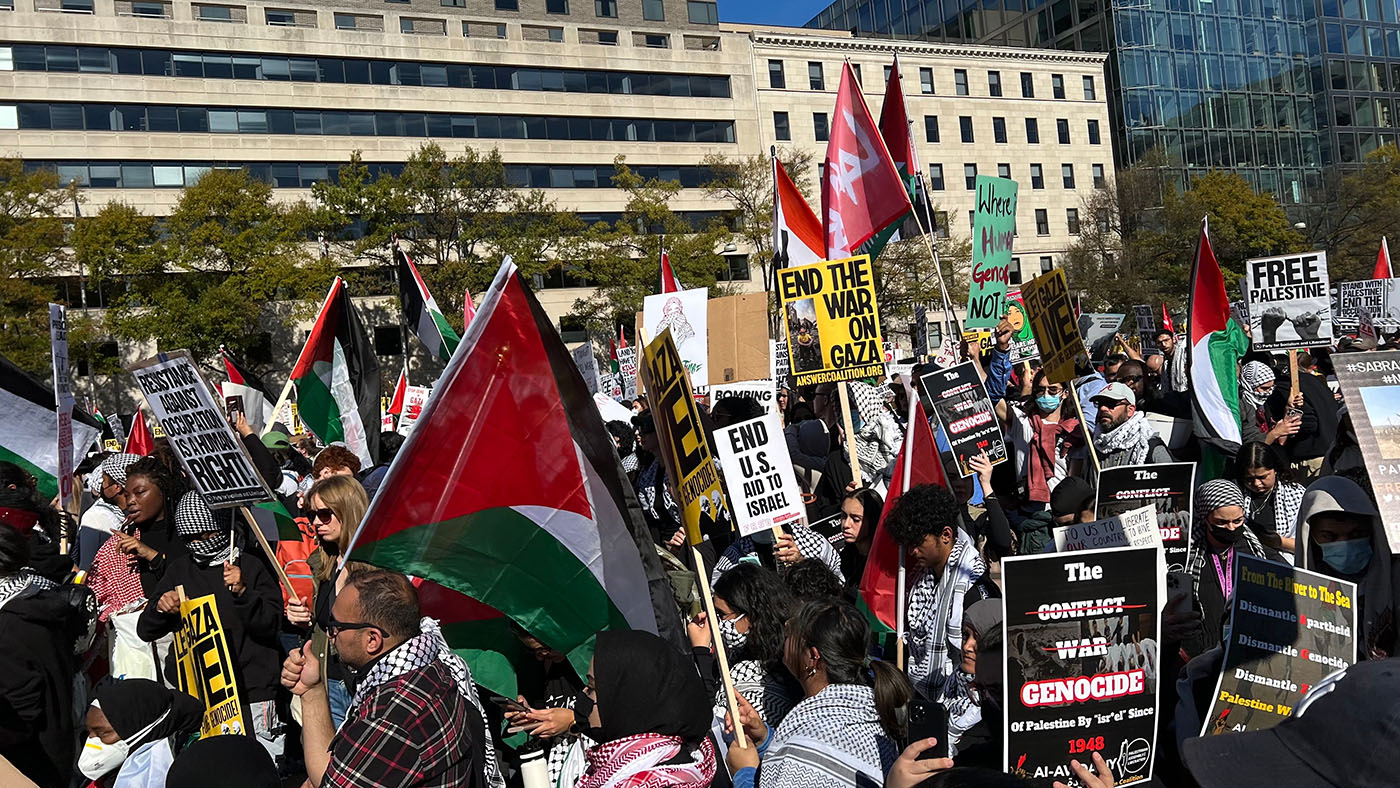
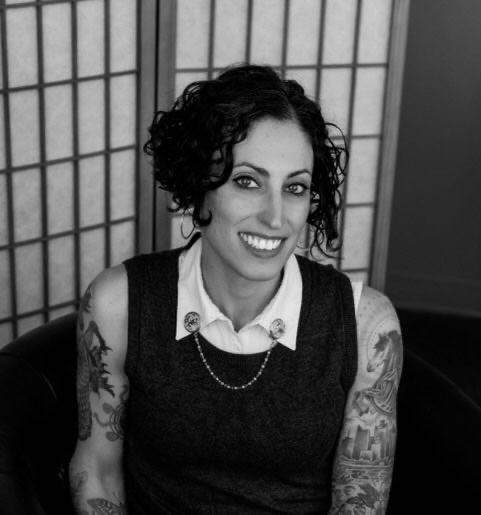















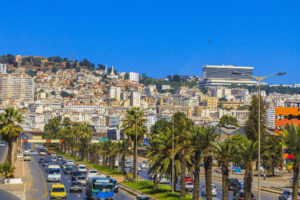

































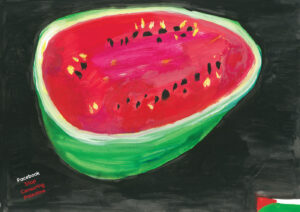
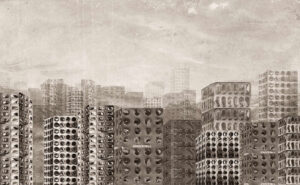

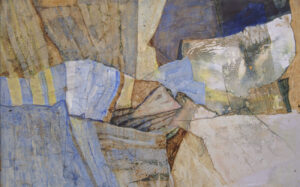













































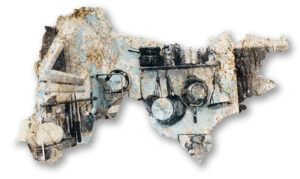

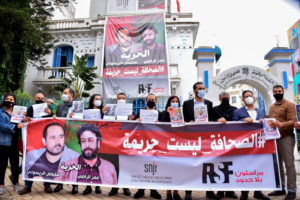
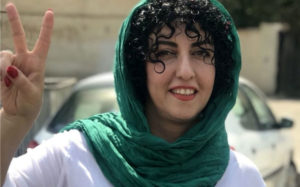


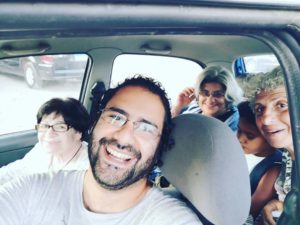




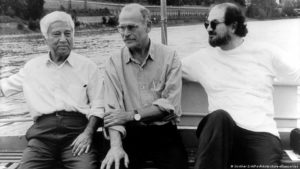


















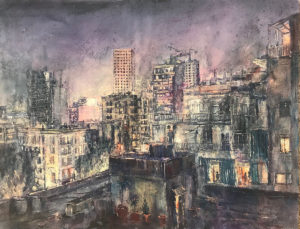
Brilliant!! This essay should be mandatory reading in all colleges and high schools
Asinine article. Why would we Jewish people stand in solidarity with those who cheer for our demise? I’m sure you would have been a member of the National Association of German Jews as well. I stand unequivocally with Israel, the homeland of the Jewish people.
Absolutely correct! The author has fallen prey to those who pretend that they oppose antisemitism but actually do so much to enforce and spread the very hatred that would snuff them out.